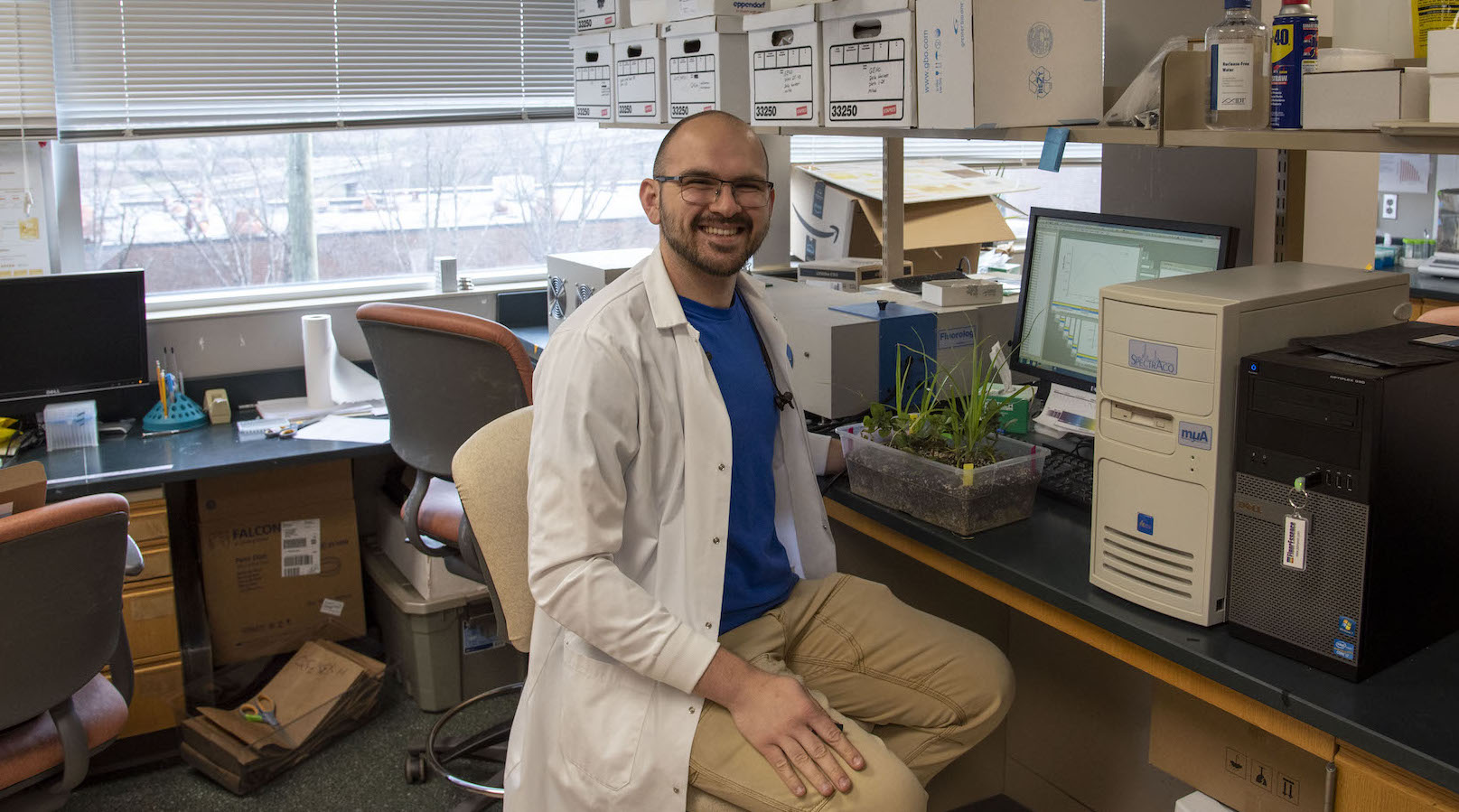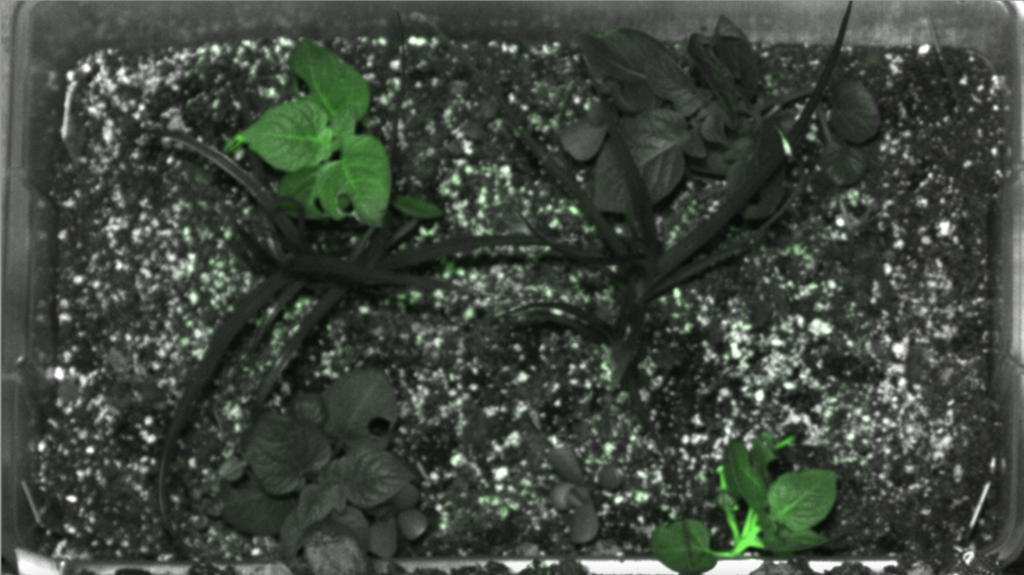
New Plant Variety Serves as Natural, Affordable Radiation Sensor
KNOXVILLE, Tenn. — A researcher in the University of Tennessee Herbert College of Agriculture has developed a potato plant that can detect gamma radiation, providing reliable indications of harmful radiation levels without complex monitoring technologies.
PhD student Rob Sears engineered the plant, also known as a phytosensor, to indicate high radiation levels through changing leaf fluorescence. When exposed to gamma radiation, the plant’s leaves produce a green glow, allowing for accurate warnings that are visible across long distances. Since potatoes are grown across the world in both hospitable and adverse climates, they are the ideal plant for the research as well as for the eventual mass implementation of the developed varieties.
Sears says that potatoes reproduce through tubers in the soil, spreading across diverse terrain while producing genetically identical offspring that provide consistent results. “Potatoes are highly resilient and are excellent at adapting and multiplying in different environments. They also have complex responses that are often specific to an environmental stressor, making them ideal reporters of conditions such as gamma radiation. My research aimed to make these responses visible and evident even from a distance, acting as a natural warning sign of harmful radiation without the need for mechanical sensors.”

As nuclear energy continues to be used across the world, there is an increased demand for effective and easily accessible radiation detection methods. Since phytosensors are affordable, easy to interpret and require no mechanical maintenance, they have the potential to improve the safety and wellbeing of workers and residents who are in close proximity to radiation sources.
“It is a rewarding experience to see the fundamental radiation biology I have studied transform into an engineered biological device that has the potential to impact future radiation monitoring,” says Sears. “Not only that, but phytosensors demonstrate the potential of synthetic biology to engineer plants as ‘devices’ that can impact not only agriculture, but also provide valuable tools for increasing the safety of our environments.”
His PhD research project, Sears says it would not have been possible without the education and experience attained while in the Herbert College of Agriculture as well as the support of Neal Stewart, professor in the UT Department of Plant Sciences, and Scott Lenaghan, professor in the UT Department of Food Science, who both served as faculty partners on the study. Sears will graduate in December 2023, and he looks forward to continuing to improve the world around him through the development of bioengineered plant varieties.
The research project was funded by the Defense Advanced Research Projects Agency.
The University of Tennessee Institute of Agriculture is composed of UT AgResearch, UT College of Veterinary Medicine, UT Extension and the Herbert College of Agriculture. Through its land-grant mission of research, teaching and extension, the University of Tennessee Institute of Agriculture touches lives and provides Real. Life. Solutions. utia.tennessee.edu.